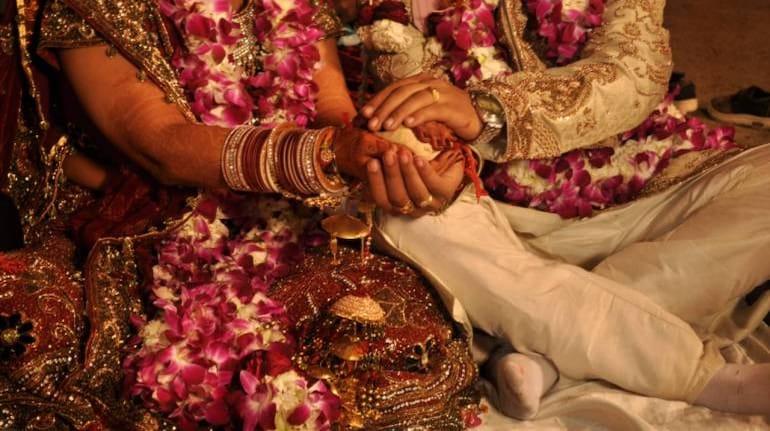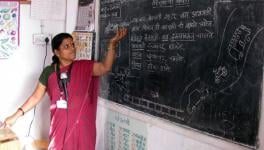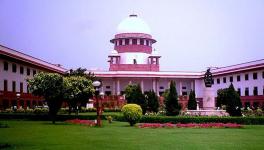Only One Woman on Par Panel to Examine Bill to Raise Women’s Marriage Age; Rest of 30 are Men

Representational Image. Image Courtesy: Moneycontrol
The 31-member parliamentary panel assigned to examine the much debated bill, which seeks to raise the legal age of marriage for women to 21, has included only one woman.
Trinamool Congress MP Sushmita Dev is the sole woman on the panel that will examine The Prohibition of Child Marriage (Amendment) Bill, India Today reported. The panel will be led by senior BJP leader Vinay Sahasrabuddhe, according to the members’ list available on the Rajya Sabha website.
The proposed law was introduced in Lok Sabha during the winter session and was referred to the Parliamentary Standing Committee on Education, Women, Children, Youth and Sports for further scrutiny by a voice vote. After examining the bill, the panel will present its recommendations before the Parliament.
The bill, which seeks to amend the Prohibition of Child Marriage Act, 2006, will increase the legal age of marriage of women from 18 to 21 if passed. It will be applicable to all communities and supersede contradicting provisions of any other marriage laws and amend personal laws in accordance to its provisions.
Commenting on the lack of women on a panel dealing with legislation that especially affects women, Sushmita Dev said that it would have been better if there were more women MPs on the panel, India Today reported. “I am the only female member in the Standing Committee which would be looking into the bill, but I will try my best to ensure that the Chairman of the Committee listens to every voice across the board,” Dev was quoted as saying.
The bill itself has been at the centre of much controversy since it was introduced in the Parliament. The government argues that the bill is a move towards gender equality as it increases the age of marriage for women and brings it at par with men at 21 years. “I would like to present that women’s equality in our country needs to be seen in (terms of) age of marriage,” women and child development minister Smriti Irani said while introducing the bill in the Parliament. She added, “The existing laws do not adequately secure the Constitutional mandate of gender equality in marriageable age among men and women.”
The stated object of the draft law also justifies its existence by saying, “Women are often put in a disadvantageous position in regard to higher education, vocational instruction, attainment of psychological maturity and skill-sets, etc. Entering into the employment sphere and being part of the workforce to make themselves self dependent ... is a critical area.” The bill adds, “These disadvantages perpetuate the dependence of women on men.”
When the bill was introduced, some MPs protested saying that the proposed legislation limited rights under several personal laws, which in turn violated the fundamental rights guaranteed in the Constitution.
“I want to tell the government that they will make mistakes if they hurry. They didn’t consult any of the stakeholders,” said Adhir Ranjan Chowdhury, Congress leader in the House. On the other hand, Asaduddin Owaisi of the All India Majlis-e-Ittehadul Muslimeen said, “This is against fundamental rights. An 18-year-old can vote but can’t get married?”
Women’s organisations have also contended the move to introduce the amendment. In an open letter addressed to the Prime Minister, the National Federation of Indian Women (NFIW) said, "While on the face of it this proposed law seems quite pro-women and progressive however it is our assessment that this form of State action does not align with its stated intent of empowerment of women particularly of nutrition, education, maternal and infant mortality levels to be improved. These issues cannot be remedied by merely increasing the legal age of marriage." Others have added that this bill, if passed, will hinder choice marriages among young people and keep young women longer under the control of their parents.
Get the latest reports & analysis with people's perspective on Protests, movements & deep analytical videos, discussions of the current affairs in your Telegram app. Subscribe to NewsClick's Telegram channel & get Real-Time updates on stories, as they get published on our website.
























